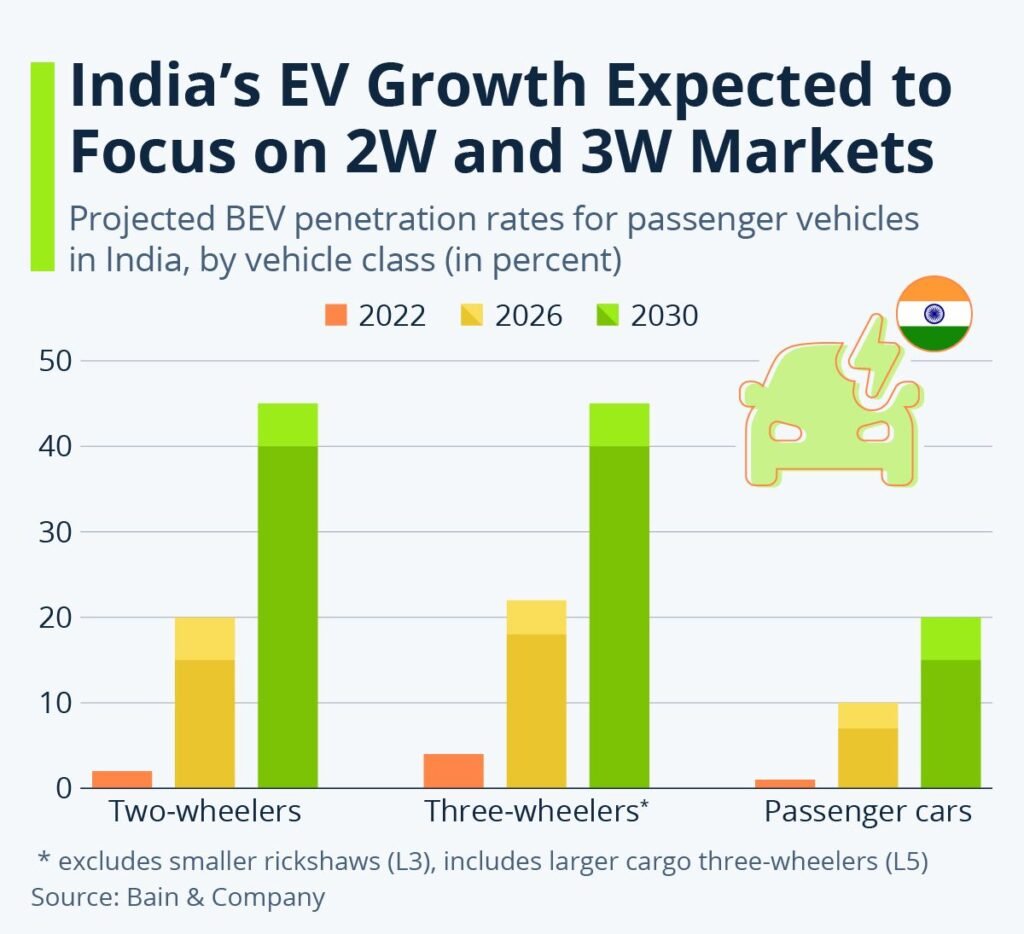There has been a surge of interest in Indian electric vehicle (EV) market as they have the potential to allow us to travel in a environment-friendly manner. High petrol prices further underline the benefits of electric two-wheelers, since their operating costs are only 0.35 per kilometer, compared to 2.20 for petrol-powered vehicles. As a result EVs offer many end-user economic benefit in the long term along with a greener and cleaner planet.

It seems obvious that all 2-wheelers marketed in the B2B category should be electric, but this is not the case. Why? Let’s delve a little deeper.
In India, the two-wheeler market is largely divided into private and commercial, with the former accounting for the lion’s share because on average a private vehicle owner just travels around 10 kilometers so for them ‘range anxiety’ is not a concern.

Commercial users, on the other hand, travel substantially larger distances, averaging 100-150 km per day, necessitating longer ranges for last-mile mobility. This implies that EVs with a range of 70 km or less are unsuitable for commercial usage since they must be recharged numerous times each day.
This problem for commercial riders can be solved up to some extent by leveraging a highly cost-effective solution like battery swapping. Another solution is to create enough charging stations to support the growing fleet.

Although the B2B business has not entirely switched to electric vehicles, there is significant opportunity for this sector to embrace green mobility and transition to a more sustainable future. The sector can reap the benefits of an electric transition by solving supply and range problems.
Reference- Auto Professional, HT Auto, Grand View Research





